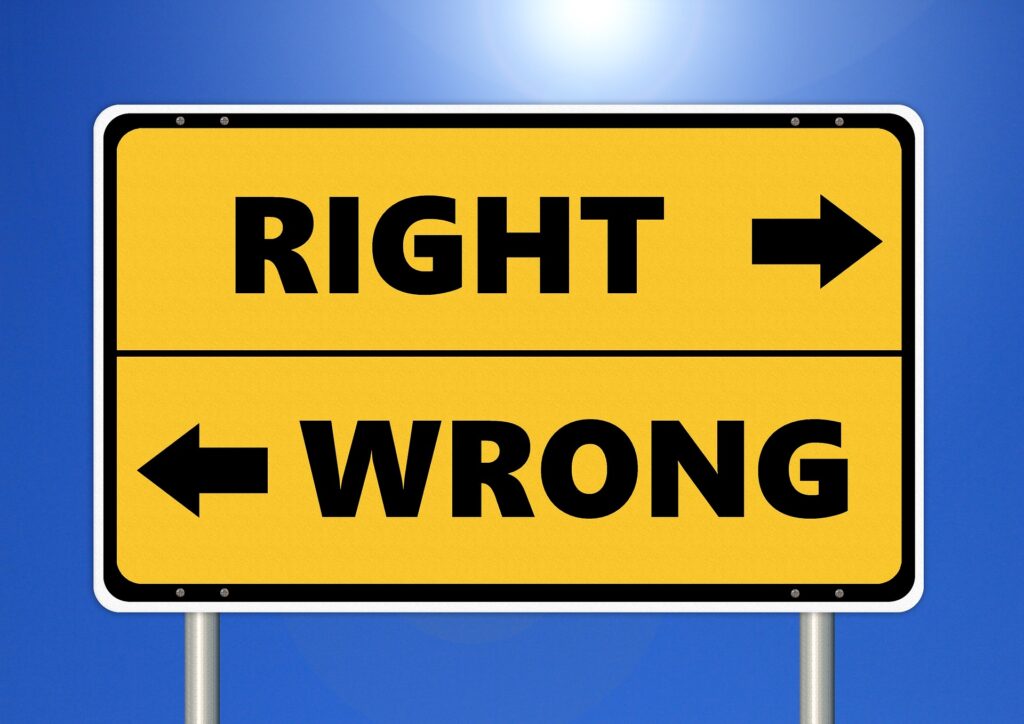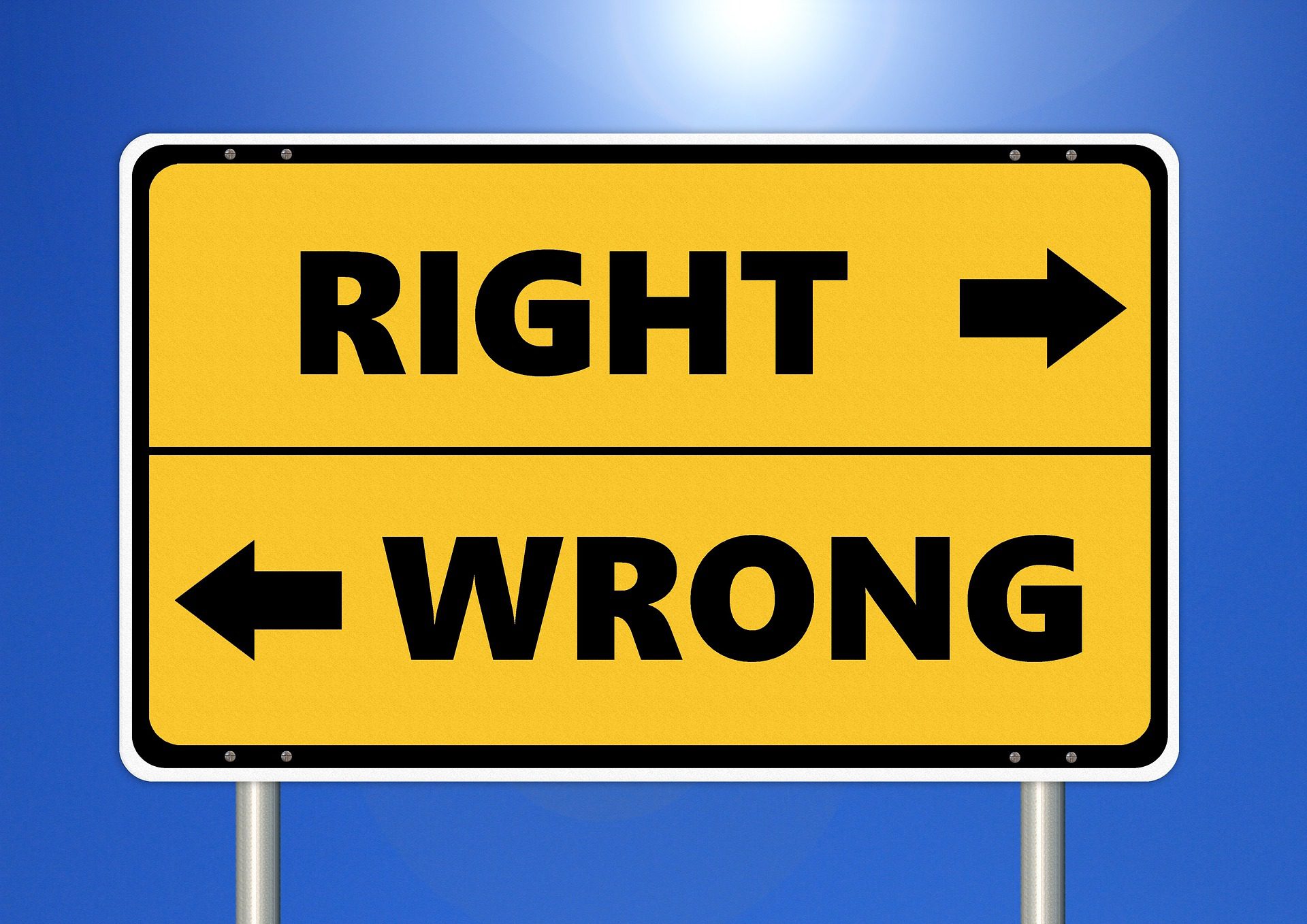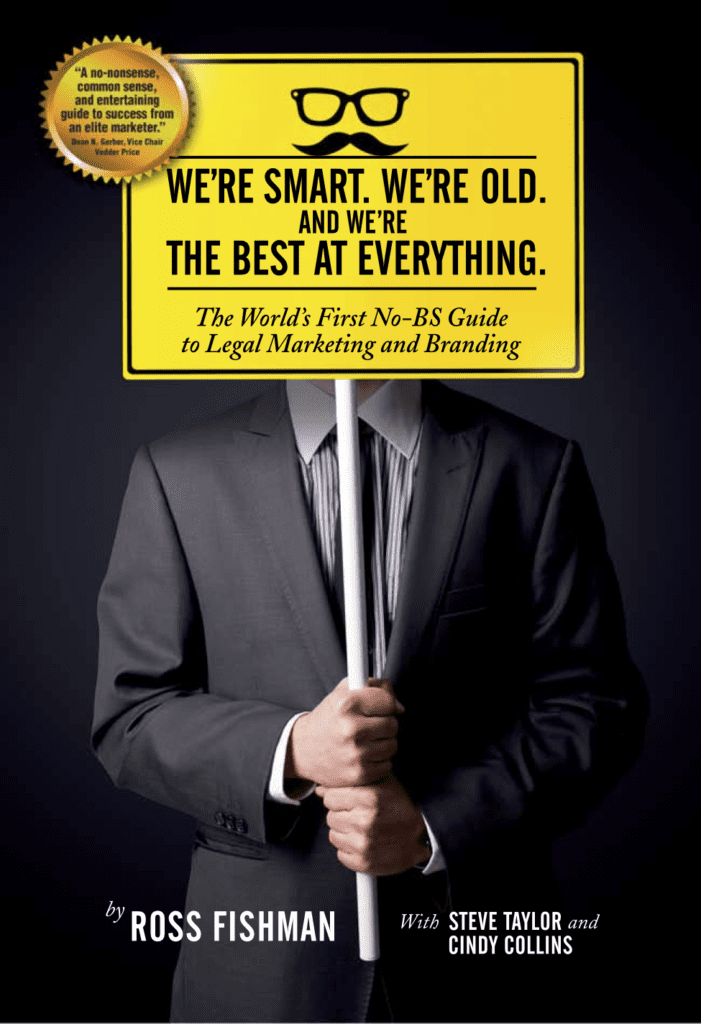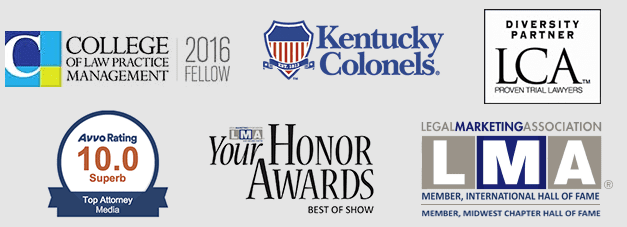Law schools rarely teach students legal-marketing ethics rules.
As legal professionals, lawyers are held to a high standard of ethics when it comes to marketing their services. The American Bar Association (ABA) Model Rules of Professional Conduct outline the ethical considerations that lawyers must follow when promoting themselves and their practices. These rules are advisory but influential. Check your local state’s rules for which, and how, these rules apply to you and your firm.
Here are 20 marketing-ethics mistakes lawyers make.
- Making Misleading Statements: Rule 7.1 prohibits lawyers from making false or misleading statements about their services or qualifications, including those which are misleading by omission. This should be a pretty easy one to not violate.
- Comparing Services: Rule 7.2 prohibits lawyers from comparing their services to those of other lawyers in a way that is false or misleading. In many states, lawyers are prohibited from making any claims that are not objectively provable, like where the lawyer went to school and the number of years in practice. No subjective or comparative claims are permitted. Technically, any adjective would violate the rule because it subtly implies that other lawyers aren’t that thing. Even saying you’re “good” implies that others might not be, which could violate the rule. I haven’t seen a law firm website that doesn’t violate the strictest interpretation of this rule.
- Offering Guarantees: Rule 7.1 prohibits lawyers from making any guarantees or promises regarding the outcome of a case. Fishman Marketing has helped a number of clients make guarantees or promises regarding the quality of the service they provide, but even that must be done carefully and with a clear understanding of the parameters of the rules.
- Using Testimonials: Rule 7.1 also restricts lawyers from using testimonials or endorsements from clients that are not based on their objective and independent opinions. Testimonials are permitted in some states and prohibited in others.
- Soliciting Clients: Rule 7.3 sets out the requirements for lawyers when soliciting clients, including avoiding any actions that are coercive or harassing. Be careful about contacting anyone you know who has a current legal need if you don’t have a pre-existing relationship with them. And the rule encompasses the activities of anyone who works for you, even non-lawyers.
- Sharing Fees: Rule 5.4 prohibits lawyers from sharing legal fees with non-lawyers, which includes paying referral fees to third-party marketers. There are other acceptable ways to compensate or bonus non-lawyers for their business-development activities.
- Accepting Referral Fees: Rule 1.5(e) prohibits lawyers from accepting referral fees from other lawyers or non-lawyers in some states, and then only in certain circumstances. Check your rules.
- Failing to Maintain Confidentiality: Rule 1.6 requires lawyers to maintain client confidentiality, which includes protecting clients’ personal information in marketing materials. This rule may prohibit a firm from ever mentioning its biggest client victories, frustrates both lawyers and marketers. In many states, without a client’s written authorization, you’re not even allowed to mention that you represent the company. The fact that the information is public knowledge will not be an effective defense. Firms routinely violate this rule using a “no harm, no foul” philosophy. But that doesn’t make it right.

- Failing to Avoid Conflicts of Interest: Rule 1.7 requires lawyers to avoid conflicts of interest when marketing their services. It can be enticing to try to land a big case when you have a very small-dollar conflict.
- Engaging in Discrimination: Rule 8.4(g) prohibits lawyers from engaging in conduct that discriminates against individuals based on their race, ethnicity, religion, gender, sexual orientation, or other factors. This should be the bare minimum. Let’s try to set a much higher bar here.
- Practicing in Unauthorized Jurisdictions: Rule 5.5 prohibits lawyers from practicing law in jurisdictions where they are not licensed or authorized to do so, which includes marketing their services in those jurisdictions. This area is getting murkier with the recent explosion of Zoom, webinars, and lawyers starting to work remotely for extended periods in warmer climates.
- Using Titles or Designations: Rule 7.4 prohibits lawyers from using titles or designations that imply they are certified as specialists in a particular area of law, unless they meet certain requirements. The prohibition against using the word “Specialist” and its variations (“specialty” or “specialize”) has been loosening in recent year, but it’s clearly prohibited in many states. Use “focus” or “concentrate” instead.
- Failing to Disclose Advertising as Advertising: Rule 7.2(c) requires lawyers to disclose that their advertising is advertising and not a referral or recommendation from another lawyer or entity. Some states get very granular on this issue, regarding the location, point size, and required language of the text.
- Failing to Keep Records: Rule 7.2(b) requires lawyers to keep copies of their advertising and marketing materials for at least two years. Not all states require this, but it’s a good practice anyway. This was tricky when law firm websites were first invented around 1995. Did you need to print out and retain every page of the website? Many firms did. in
- Engaging in In-Person Solicitation: Rule 7.3 also sets out the requirements for lawyers engaging in in-person solicitation, including avoiding any actions that are coercive, intimidating, deceptive, or misleading. There are higher standards for direct or in-person communication. Many of the early legal marketing Supreme Court cases discussed this issue, after injury lawyers visited hospital rooms seeking to persuade injured young people to sign contracts, etc.
- Failing to Disclose Limitations: Rule 7.1 also requires lawyers to disclose any limitations on their services or qualifications in their marketing materials.
- Making Unsubstantiated Claims: Rule 7.1 prohibits lawyers from making claims about their services or qualifications that cannot be substantiated.
- Using Deceptive Tactics: Rule 8.4 prohibits lawyers from engaging in conduct involving dishonesty, fraud, deceit, or misrepresentation in their marketing.
- Failing to Comply with Advertising Restrictions: Rule 7.5 sets out specific restrictions on lawyer advertising, such as prohibiting the use of trade names that are misleading or imply a connection with a government agency. This rule no longer exists in many states as trade names have grown in use and popularity. But be careful with self-aggrandizing names that would violate other rules, like “The Awesome Law Firm,” or calling yourself “The Jones Legal Clinic” if you’re a firm, not a clinic. Some common violations include a firm calling itself “The Law Offices of Jane Smith” if there’s only a single office, or “Smith & Partners” if there are no other partners.
- Failing to Comply with Social Media Guidelines: Rule 7.1 also applies to lawyers’ use of social media, requiring them to comply with the same ethical guidelines as any other form of advertising. The same ethics rules apply regardless of the type of media, whether it’s billboards, blimps, or brochures.
In conclusion, lawyers must be aware of the ethical considerations involved in marketing their services. By avoiding these top 25 marketing-ethics mistakes and following the ABA Model Rules of Professional Conduct, lawyers can ensure that their marketing efforts are both effective and ethical. Regular marketing-ethics training is highly recommended. A ounce of prevention, and all that….
Need a new advertisement, brand, or website?
Contact Ross now at: ross [at] fishmanmarketing.com or +1.847.921.7677.
Download a free copy of his best-selling strategy and branding book, “We’re Smart. We’re Old. And We’re the Best at Everything.” here or buy an actual book on Amazon here.
Do your lawyers need marketing training or a dynamic speaker at a firm retreat, either live or via webinar? Ross is one of the legal profession’s most-popular marketing and CLE presenters. Here’s a link to a video of Ross in action.



